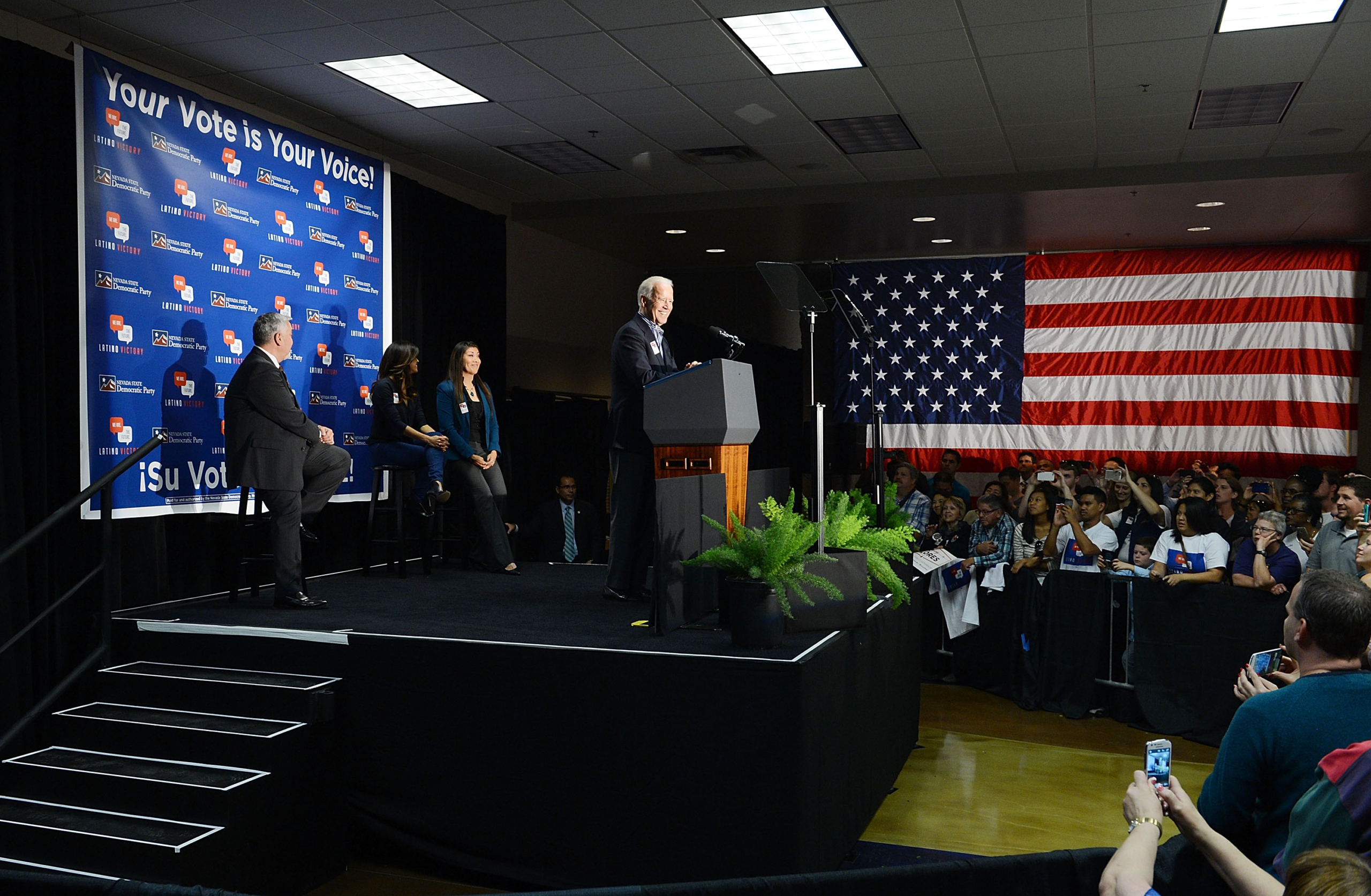Sign up for The Media Today, CJR’s daily newsletter.
On Friday, The Cut published a first-person piece by Lucy Flores, a member of the Nevada State Assembly. Flores recounts an incident that took place in 2014, when she was running for lieutenant governor of the state. Just before walking onstage at a campaign event, Vice President Joe Biden came up behind her, smelled her hair, and kissed the back of her head. Flores describes the calculations she made about whether to come forward with the story: “I worried about the doubts, the threats, the insults, the minimization,” she writes. “The immediate passing of judgment and the questioning of motives.”
Accounts of Biden’s behavior toward women have been published in the past, albeit before Harvey Weinstein was discredited and #MeToo seized everyone’s attention. More recent reminders have done little to tarnish Biden’s reputation. What made Flores decide to finally share? Biden’s likely presidential run, she says. “I’m not suggesting that Biden broke any laws,” Flores concludes, “but the transgressions that society deems minor (or doesn’t even see as transgressions) often feel considerable to the person on the receiving end.”
When deciding to share a story of abuse, harassment, or anything on the broad spectrum of transgression, a person is making a journalistic judgment. She decides that the newsworthiness of what she has to say—in other words, the importance of speaking out, the potential impact of the story, and the information she would give the public—outweigh whatever harm it might do to her life in the short term. If we take the experiences of other women as examples, that harm might include accusations leveled against her, scrutiny of her life and sexual behavior, and attempts to discredit her story by pointing out its political motivations. Flores embraced the skeptics. “Politics was definitely the impetus,” she told CNN’s Jake Tapper on Sunday. “Frankly, the reason why I felt so compelled to finally say something was because over the years, as this behavior was documented, as it was frankly dismissed by the media and not taken seriously.”
A number of women have spoken openly about deciding whether to make news, most notably Christine Blasey Ford, whose reluctance to become a figure in the press was front and center in her testimony before Congress during Brett Kavanaugh’s Supreme Court confirmation hearing. Blasey Ford had tried to inform Congress of her assault while remaining anonymous, sending a letter to her senator, Dianne Feinstein. When Blasey Ford’s identity was leaked, she eventually agreed to testify publicly. “I didn’t want to go the media route,” Ford told the Judiciary Committee. But then, she said, “My motivation in coming forward was to be helpful.”
The vetting of newsworthiness is not simple. In January 2018, when Babe.net published an anonymous account of a woman’s creepy date with Aziz Ansari, readers wondered: If women aren’t coming forward with a crime should they be coming forward at all? Is there room for gray areas in #MeToo? Many women make this calculation on a daily basis—Should I talk to HR?—and some decide that their stories do not count as #MeToo stories, because they aren’t severe enough, or their harasser isn’t famous.
The first-person essay is something of an answer to this dilemma. When victims of harassment write a piece themselves, they know exactly what will be published. The result often incorporates the uncertainty about whether to come forward at all, and the insecurity that women and others feel when they are victims of harassment. Women are able to air their own doubts about coming forward—to say, I’m not sure if this counts—in anticipation of the criticisms that might be made of them.
This insecurity is a crucial component of every #MeToo story, from Weinstein to Biden; #MeToo has made women’s uncertainty—a feeling inherent to being abused—newsworthy in its own right. Flores’s vulnerability is front and center: she describes her embarrassment when Biden smelled her unwashed hair. So is her uncertainty about whether her story will count for anything; Flores’s story is tagged as “METOO” on The Cut’s website, but she never mentions the movement.
RELATED: On the confessions of fallen men
Has America ever needed a media defender more than now? Help us by joining CJR today.



